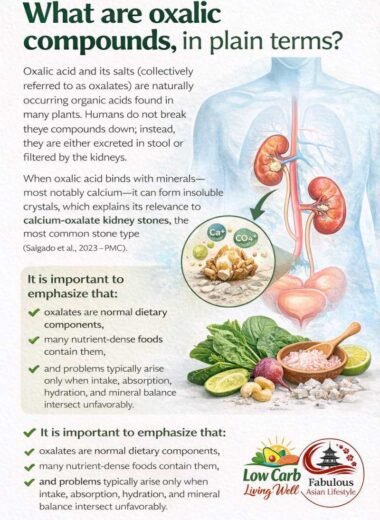Sustainability in Business
Table of Contents
Sustainability in Business: A Personal Perspective with Real-World Examples
As a consultant, I’ve watched sustainability transform from a niche concern into a core business imperative. Today, sustainability isn’t just about compliance; it’s about building resilient organizations that thrive economically while safeguarding the environment and supporting communities. I’ve seen firsthand how companies that embed sustainability into their strategy not only future-proof their business but also inspire employees, attract customers, and earn the trust of stakeholders.
What Does Sustainability in Business Mean?
Sustainability in business involves striking a balance between profitability, environmental stewardship, and social responsibility. It’s the commitment to operate in ways that protect the planet, empower people, and ensure long-term economic health. This approach is often described as the “triple bottom line”: People, Planet, and Profit.

The Three Pillars of Business Sustainability
1. Environmental Sustainability
This pillar focuses on minimizing negative impacts on the environment. I’ve observed companies like Patagonia lead the way by using recycled materials in their clothing and donating a percentage of profits to environmental causes. IKEA is another standout, with a commitment to sourcing nearly all its wood from FSC-certified or recycled sources and investing in renewable energy for its operations. Meanwhile, Bosch achieved climate-neutral status in 2020, meaning its global operations have net-zero carbon emissions.
2. Social Sustainability
Social sustainability is about treating employees, customers, and communities with respect and fairness. Unilever has made significant strides in this area, aiming for a deforestation-free supply chain and supporting fair labor practices across its global network. TOMS is well-known for its One-for-One model, which donates a pair of shoes for every pair sold. This initiative has resulted in over 100 million pairs being distributed to people in need and has expanded to support initiatives for clean water and safer childbirth. Lacoste’s “Save the Species” campaign, in partnership with the IUCN, raises awareness and funds for endangered species, demonstrating how brands can use their influence for social good.
3. Economic Sustainability
Economic sustainability ensures businesses remain viable and profitable while pursuing environmental and social goals. BMW has integrated sustainability into its business model by expanding its range of electric and hybrid vehicles and reducing emissions throughout its supply chain. Intel invests in green energy and water restoration, aiming to achieve zero landfill waste by 2030, while maintaining its position as a global technology leader. These companies demonstrate that sustainability can drive innovation, reduce costs, and open new markets.

Why Sustainability Matters
From my experience, companies that prioritize sustainability see tangible benefits:
-
Reputation and Trust: Customers and investors increasingly support brands with strong sustainability credentials.
-
Cost Savings: Energy efficiency, waste reduction, and sustainable sourcing often result in lower operational costs.
-
Risk Management: Proactively addressing environmental and social risks helps avoid regulatory penalties and reputational damage.
-
Talent Attraction and Retention: Employees, especially younger generations, want to work for organizations that reflect their values.
For example, Microsoft has set ambitious goals to become carbon negative by 2030 and to remove all the carbon it has emitted since its founding by 2050. This commitment not only addresses climate risk but also positions Microsoft as a leader in the tech sector.

How Companies Put Sustainability Into Practice
-
Setting Clear Goals: GlaxoSmithKline aims to reduce its environmental impact by one quarter by 2030, focusing on renewable energy, water conservation, and waste repurposing.
-
Innovating Products and Processes: Lego is transitioning to recyclable materials and uses renewable energy for its operations, while also engaging children in sustainability through its “Build the Change” program.
-
Engaging Stakeholders: Prologis, a global real estate leader, involves suppliers in its sustainability efforts and ensures its buildings meet high environmental standards.
-
Transparency and Reporting: Many companies now publish annual sustainability reports, utilizing frameworks such as the Global Reporting Initiative (GRI) to track and communicate their progress.

Challenges and the Path Forward
Adopting sustainability isn’t without challenges. It requires investment, cultural change, and sometimes a rethinking of business models. However, the companies I’ve worked with or observed that’ve embraced sustainability, from Patagonia to IKEA to Microsoft, have demonstrated that the rewards far outweigh the risks.
Looking ahead, I believe sustainability will only become more central to business strategy. It’s not just about doing good- it’s about staying relevant and resilient in a rapidly changing world.

Conclusion
Sustainability in business is no longer optional. It’s a strategic necessity that drives long-term value for companies, communities, and the planet. By learning from leaders like Patagonia, IKEA, Unilever, and Microsoft, and by embedding sustainability into every aspect of operations, businesses can build a future that’s not only profitable but also responsible and inspiring.
More Stories
- 10 MEN’S FASHION HACKS | DRESS TO IMPRESS
- HOW TO STAY LOOKING YOUNG IN YOUR 40s
- HOW TO GET RID OF BLACKHEADS
- SWIMSUITS FOR WOMEN | FASHION GUIDE
- SKINCARE ROUTINE FOR OILY SKIN
- Say YES to the JVA! | Joint Venture Agreement – Primelectric and CENECO
- Marketing and Entrepreneurship Department Teambuilding [USLS]
- Emerging Technologies and Digital Transformation
- Globalization vs. Localization: Balancing Global Strategies
- Employee Retention: Insights and Best Practices
- Employee Engagement and Experience













Good day, doc!
I am writing this letter to formally inform you that because of my full schedule lately, I may not be able to send my answer for this article before 12mn. With this, I am asking you for an extension to send my answer. Thank you in advance doc!
Current business structures, which are dominated by shareholders’ interest, and repetitive ‘take-make-dispose’ approaches, have basic limits in attaining real sustainability. While market-based solutions such as carbon trading and technological innovations such as renewable energy make important contributions, they often come short due to recovering impacts, the importance of profit over environmental restrictions, and the exclusion of negative effects from pricing mechanisms. A major shift in perspective requires studying alternative economic systems that value well-being and ecological integrity above unending growth, such as circular economy models or slowing down methods. Strong governmental interventions, such as strict environmental restrictions, carbon taxes, and limited resources, are critical for internalizing externalities and directing economic behavior toward sustainability. Ultimately, an important change in consumer attitudes, including mindful consumption, reduced materialism, and a deeper awareness of ecological boundaries and social justice, will be required to generate demand for truly sustainable business practices and build a livable future.
Assessment of the extent to which current business models can genuinely achieve sustainability, or whether a fundamental paradigm shift is required
Current business models, often focused on maximizing profit and growth, struggle to genuinely achieve sustainability due to increasing global resource scarcity, environmental degradation, and social inequality. While some companies are adopting sustainable practices, a systemic shift is needed to integrate these principles into core business operations and policies.
The Problem:
Resource Scarcity: The depletion of natural resources like water, minerals, and land, coupled with the rising demand for goods and services, creates a strain on ecosystems and the planet’s ability to support future generations.
Environmental Degradation: Pollution, deforestation, climate change, and biodiversity loss are all consequences of unsustainable practices, impacting ecosystems and human well-being.
Social Inequality: Disparities in wealth, income, and access to resources create social injustices and hinder progress towards sustainable development.
Limitations of Current Business Models:
Linear Economy: Most businesses operate within a linear “take-make-dispose” model, leading to waste generation and resource depletion.
Short-Term Focus: Profit maximization often takes precedence over long-term environmental and social consequences, leading to a lack of investment in sustainable practices.
Lack of Transparency and Accountability: Businesses may not fully disclose their environmental and social impacts, making it difficult for consumers and investors to hold them accountable.
Pathways Towards Sustainable Business Models:
Circular Economy: Shifting towards circular models that reduce waste, reuse materials, and promote recycling is crucial for resource efficiency.
Triple Bottom Line (TBL): Integrating social, environmental, and financial performance into business decision-making is essential for achieving true sustainability.
Sustainable Business Practices: Adopting practices such as renewable energy, reducing emissions, and improving resource management can help mitigate environmental impacts.
Social Impact Assessments: Evaluating the social impacts of business operations and implementing strategies to address inequalities is necessary.
Collaboration and Partnerships: Businesses, governments, and civil society need to collaborate to create a more sustainable world.
Examples of Sustainable Business Models:
Companies focused on renewable energy: These businesses are actively promoting clean energy solutions and reducing reliance on fossil fuels.
Businesses with strong ethical sourcing practices: These companies prioritize fair labor practices, sustainable agriculture, and responsible sourcing of raw materials.
Companies committed to reducing waste and pollution: These businesses are implementing circular economy models, reducing emissions, and promoting waste reduction.
Exploring the limitations of relying solely on market-based solutions and technological innovations, and consider the potential role of alternative economic systems, radical policy interventions, and shifts in consumer values in fostering a truly sustainable future for business.
Relying solely on market mechanisms and technology for sustainability is insufficient; a holistic approach incorporating alternative economic systems, radical policy interventions, and shifts in consumer values is crucial for fostering a truly sustainable future for business. Market-based solutions, while valuable, can be limited by the tendency for businesses to prioritize short-term profits over long-term environmental and social impacts. Similarly, technological solutions, while offering potential for efficiency gains, may not address systemic issues and require broader societal changes.
Limitations of Market-Based Solutions and Technological Innovation:
Short-Term Focus: The profit motive often leads businesses to prioritize immediate gains, potentially overlooking long-term environmental consequences or social costs.
Lack of Systemic Change: Market mechanisms and technology often address problems on a product-by-product basis rather than tackling the root causes of unsustainable practices.
Inequitable Distribution of Benefits: Technological advancements can exacerbate inequalities, as access to new technologies and the benefits they offer may not be equally distributed.
Potential for “Greenwashing”: Companies may make superficial sustainability claims without genuine changes in their practices, undermining public trust.
Alternative Economic Systems, Radical Policy Interventions, and Shifts in Consumer Values:
Alternative Economic Systems: Exploring alternatives like circular economy models, which focus on resource efficiency, reuse, and recycling, can provide a more holistic framework for sustainable production and consumption.
Radical Policy Interventions: Government policies, including regulations, incentives, and taxation, can play a crucial role in shaping business behavior and driving sustainability. For example, policies promoting renewable energy, taxing pollution, or supporting sustainable agriculture can create incentives for businesses to adopt more sustainable practices.
Shifts in Consumer Values: Encouraging consumers to prioritize quality, durability, and environmental responsibility over fast fashion and disposable goods can shift demand towards more sustainable products and services. This can be achieved through education, awareness campaigns, and initiatives that highlight the benefits of sustainable consumption.
The Role of a Holistic Approach: This approach recognizes that sustainability is not just about technological innovation or market-driven efficiency, but also about fundamental changes in how we produce, consume, and organize our economies. By embracing this holistic approach, businesses can not only achieve sustainability but also create new opportunities for growth and innovation.
Promoting sustainability in business is all about creating a balance between success and caring for the environment. It’s not just good for the planet but also helps businesses stay strong in the long run. For example, companies can focus on reducing waste, choosing eco-friendly materials, or supporting local communities. When businesses promote sustainability, they set an example for others and inspire people to make positive changes too. It’s like saying, “We can succeed, but let’s make sure the Earth does too!”
Sustainability in business is important because it’s about taking care of our planet while still being successful. Businesses have a huge impact on the environment, so adopting eco-friendly practices like reducing waste, using renewable energy, or creating sustainable products helps protect natural resources. It also shows that companies care about their future and their customers’ future, which builds trust. Plus, sustainability can spark new ideas and opportunities, making businesses more innovative. It’s like doing what’s right for the planet and staying competitive at the same time!
In relying solely in the market for sustainability, there are various market based instruments that can sustain business. The market based instruments for environmental management are policy intervention that provide incentives for producers and consumers to share behavior. Having business that could cause pollution or harm the environment the company had an obligation to provide solutions. They also cultivate innovations, creating dynamic pressures that make implementing improvements for environmental sustainability cheaper over time. The market based instruments such as environmental taxes and tradable permit markets, create opportunities to raise government revenues.
When it comes down to it, I feel like most business models today still aren’t enough to really achieve true sustainability. Even though market solutions and new tech can help a bit, they still mainly focus on making profits, which limits how much real change can happen. Technology can make things a little more eco-friendly, but it doesn’t address the larger issue of how much we consume in general. I believe that achieving true sustainability requires a fundamental paradigm shift in how businesses and society define success and growth. Systems such as the circular economy, or even steady-state economic models that value long-term community and environmental health over unrestricted profit, may be required. Stronger government controls and drastic policy changes may assist steer corporations in the correct path. However, even with new policies and technologies, nothing will truly change unless people change their values, shifting away from overconsumption and toward valuing sustainability in everyday life. Without these significant adjustments, we risk only masking the symptoms of a much deeper disease.
“In light of increasing global resource scarcity, environmental degradation, and social inequality, critically assess the extent to which current business models can genuinely achieve sustainability, or whether a fundamental paradigm shift is required. Explore the limitations of relying solely on market-based solutions and technological innovations, and consider the potential role of alternative economic systems, radical policy interventions, and shifts in consumer values in fostering a truly sustainable future for business.”